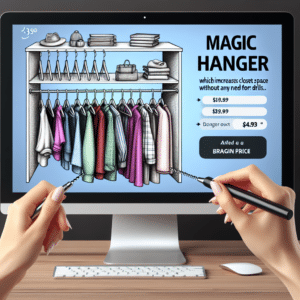Representatives of the food sector and politics analyze pros and cons of front-of-pack labeling
The European Commission is preparing a review of front-of-pack labeling of packaged foods, a task that is proving to be anything but easy and has generated a wide range of opinions among countries and sectors such as meat, dairy, and olive oil, who have expressed their opposition to NutriScore, one of the proposals that, in some cases, is already being used voluntarily.
To assess the situation and shed some light on future possibilities, Competere Policies for Sustainable Development, a political institute that conducts analysis and promotion activities to encourage world trade, innovation, sustainable and resilient supply chains and promote sustainable nutrition, carried out the event «Front-of-pack labeling of food in Spain and the European Union. Which path to follow?», where representatives from the food sector and politics have presented the different views they hold on this issue.
Pietro Paganini, president of COMPETERE, highlighted during his intervention that «labels are not only a means to inform consumers, they can also be an ideological, political and commercial tool. Political movements, groups of scientists and bureaucrats want these labels to tell consumers whether the product is good or bad for our health. However, the main problem is poor nutrition, malnutrition, obesity, and all related diseases».
Horacio González-Alemán, CEO of Thoffood, moderated the debate of the sector representatives, which included Giuseppe Aloisio, deputy general secretary of ANICE; Aurelio del Pino, president of ACES; Pilar Ayuso, member of the OCU Board of Directors; Ascensión Marcos, CSIC research professor; Gabriel Trenzado, CEO of Cooperativas Agroalimentarias de España; and Enrique García-Tenorio, director of the DOP Montes de Toledo and María Martínez-Herrera, sustainability director of ASEDAS.
All sector representatives agreed that labeling is an instrument, and producers will continue to offer the best to society. Likewise, the participants agreed that the solution is to educate citizens, allowing the consumer to empower themselves with their individual freedom without telling them what is good or bad, but rather what the mechanisms of nutrition and the body are. The challenge to improve society’s diet is to achieve the creation of personalized diets, allowing everyone to make informed decisions based on individual needs.
Despite some studies on the application of the NutriScore model, not everyone understands it to be sufficiently valid, with concerns arising about this model that they claim is harming certain sectors of the industry. Likewise, there was unanimity on the need for the European Commission to take into account consumers and work on a voluntary and harmonized model, at the European level, to avoid the alteration of intra-community trade.
Finally, to understand the legal situation from the perspective of each political group, a roundtable was moderated by Ricardo Miguelez, CEO of Agrifood Communication, which was attended by Ana María Romero, secretary of Agriculture, Livestock and Fisheries of the PSOE; Ricardo Chamorro, spokesperson for the Agriculture, Fisheries and Food Commission of VOX; and Milagros Marcos, spokesperson for the PP in the Agriculture, Fishing and Food Commission.
During the discussion, Romero pointed out that from the PSOE, «we do not agree with the current NutriScore,» and stressed the need for «a homogeneous system throughout the European Union to defend the Mediterranean diet.»
Marcos, for her part, said that «if we are not able to orient a color system towards healthier habits, it’s just not working.» Finally, she stated that «a front-of-pack labeling that provides information but does not take into account the quality of the products is not the one that should be applied.»
On the other hand, the VOX representative stated that his party «opposed this type of labeling» and added that «we argued that it had to be urgently stopped because it did not meet information expectations, and treated people like numbers.»
As a conclusion, Pietro Paganini highlighted that «it must be understood that the ingredients are not the ones causing these diseases but rather the combination of diet and lifestyle,» and added that «the causes of poor nutrition are so complex that traffic lights or color scales will not solve the problem. NutriScore has not contributed to any improvement in public health. Since its introduction in France in 2017, obesity levels in France have doubled. It is a system that appeals to consumers emotionally, whose colors influence children and youth, who guide their parents to make the grocery list.»
This issue is still being studied based on the guidelines set by the European Union.
















